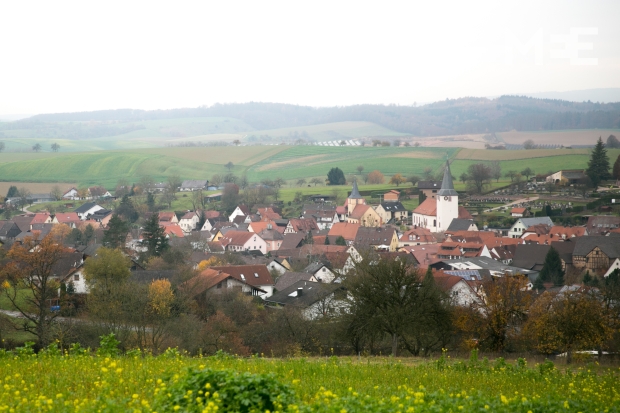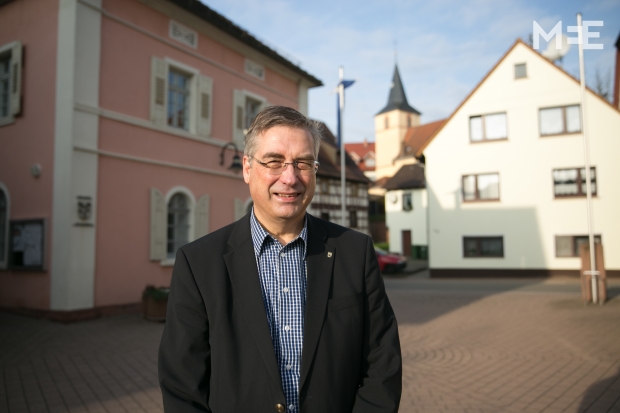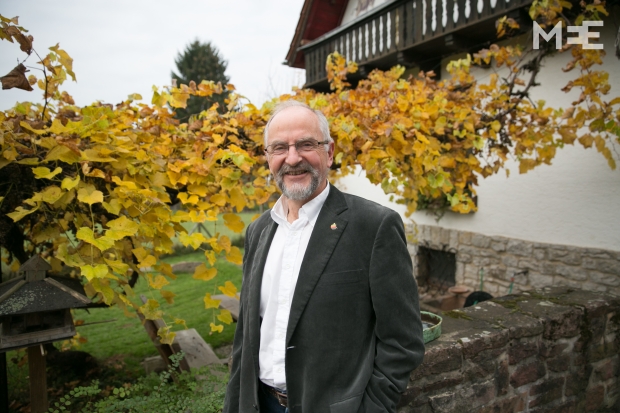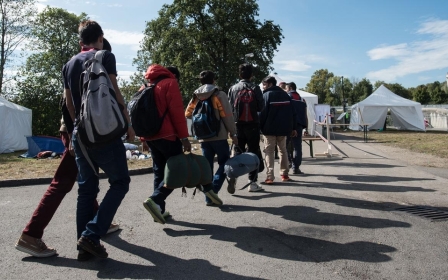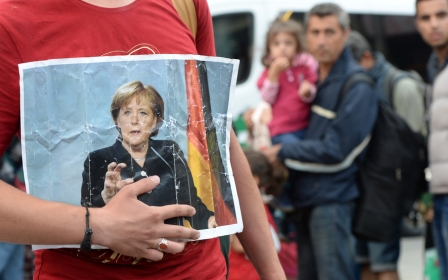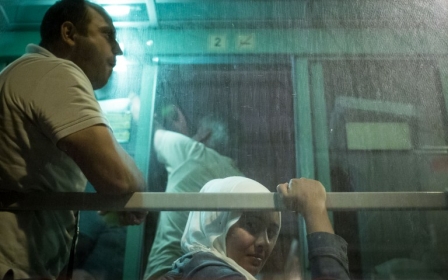Syrians and Iraqis try to adjust to life in a sleepy German village
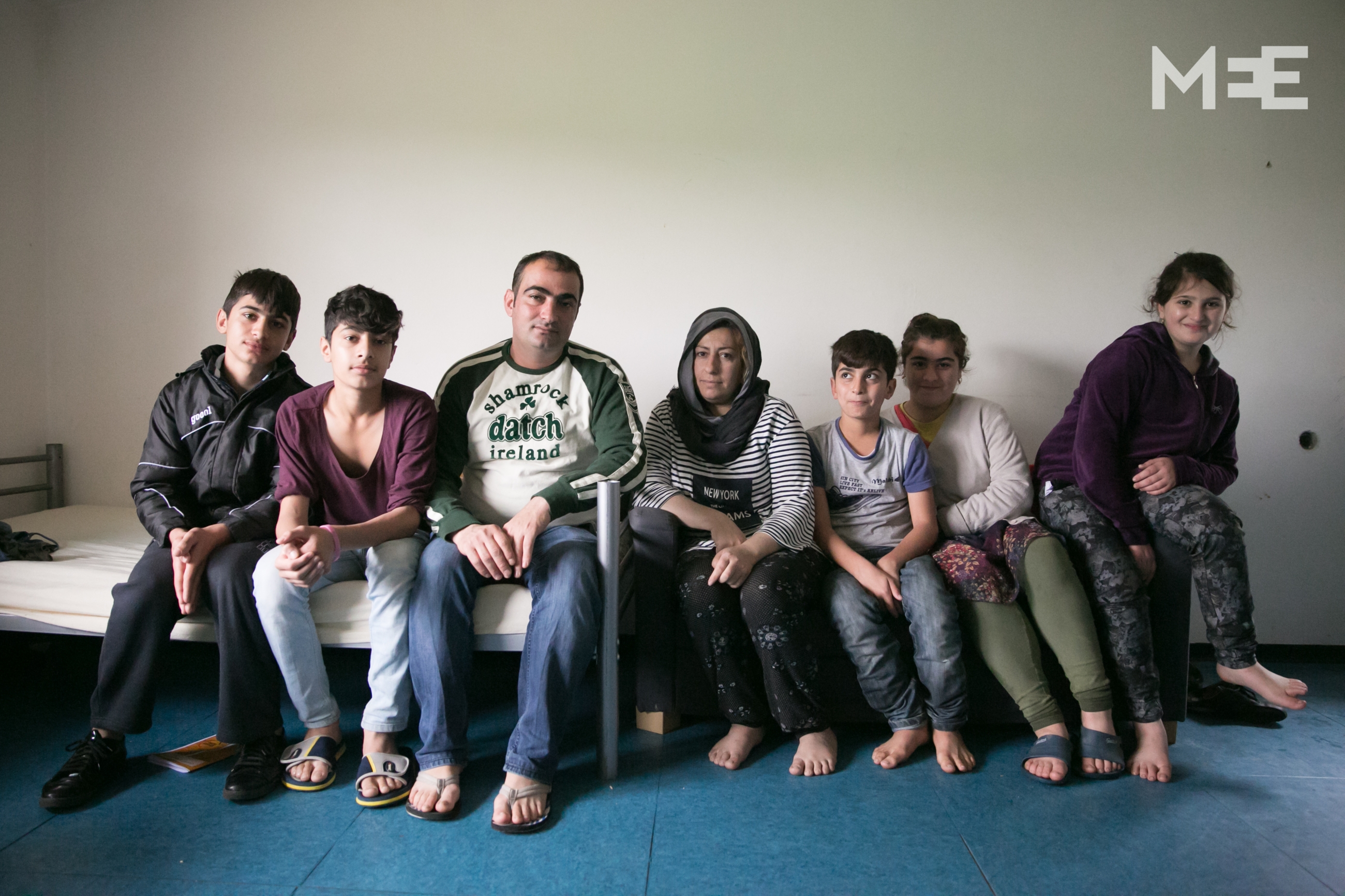
SPECHBACH, Germany - Hundreds of thousands of people have made the arduous journey from places like Syria, Afghanistan and Iraq this year all in hopes of reaching Europe and Germany in particular. Once they get there, sometimes after months of travelling on foot, or with the aid of smugglers, the refugees and migrants are accommodated in mass “welcome centres”.
These tend to be in large cities like Munich in the south, where people wait in the thousands to be relocated to more permanent accommodation.
They are assigned to different regions of Germany depending on the area’s wealth, with better-off regions receiving more refugees in order to try and lessen the impact of the new arrivals. However, large towns and smaller rural communities alike are being effected.
Spechbach is a small village with a population of 1,770 that rests in the countryside outside Heidelberg in the southwest of the country.
Nestled between two hills amid rolling countryside, it is one of the smallest villages in the region to take in refugees and has been doing so for several years – an influx that has brought both challenges and opportunities to this little community.
Refugee history
Spechbach sits in Germany’s wealthiest region per capita, Baden-Wurttemberg, and refugees have been housed here by the government for the last five years - well before this year’s large increase in the numbers entering the country.
The refugee house in Spechbach lies on the edge of the village and accommodates about 100 refugees. The building used to be a convalescence home in the 1960s and 70s, where sick people from neighbouring cities would be sent to recover in the fresh air. It was converted to a house for refugees in 2010.
Since then, it has housed refugees for one to two years, while asylum applications are reviewed by authorities.
“Spechbach as a village is hospitable,” the mayor, Guntram Zimmerman, told Middle East Eye. “Our whole history in this village is one of taking in refugees. After the Second World War, perhaps there were 700 people living here, and we got more than 350 people coming from the east of Germany - Chechens, Poles, Hungarians, Czechoslovakians. My mother-in-law is Chechen and she says the situation now is the same.”
“When the refugees stand in front of the mayor’s office waiting, she knows the people, she knows their eyes. And these people who came from Chechnya and other countries, most of them are living as old people in the village. They don’t forget it,” said Zimmerman, a member of the left-leaning Social Democratic Party.
But the relationship between the small village and more recent refugees who started coming in 2010 has not been as smooth, he said.
“Five years ago, we had a big council meeting and we informed the people in the village [that a refugee centre was opening] and they were afraid; they looked to their children, to their girls and to their cars and bikes and they thought the people coming were only thieves,” Zimmerman said.
Local people are now used to the refugees, and “the situation is normal here now, we have no problems,” he said.
But there are other, more structural challenges with hosting so many new arrivals. Spechbach has no large food shops, and the nearest town with a supermarket is about 5km away; there are no cafes, the one restaurant is shut in the winter, and bus fares to nearby towns are relatively expensive.
Many refugees say that while they are happy to have reached Germany, they are struggling to adapt to the size and remoteness of the village.
“We’ve been here less than a week, but me and my family are already bored," said Whalid, 32, from Sinjar in Iraqi Kurdistan. “We were in a camp in [the nearby town of] Heidelberg for three months before that. Heidelberg was very nice. It’s a beautiful city with many shops, markets, a nice river. But here it’s just a small village - no shops, no market, not too many facilities for my family. I am happy here, it’s a nice small village, but the problem is it’s very hard to get anywhere.”
Whalid, his wife Seyda, and their five children fled Sinjar earlier this year because of fighting with Islamic State. “I myself didn’t see ISIS [Islamic State] but they killed my relatives and many other Kurds,” he said. “My uncle and aunt were killed when ISIS attacked their village. There were problems with water, electricity, food and water. Power cuts happened for hours every day.”
Whalid and Seyda’s children are about to start at Spechbach’s primary school, which has a special class for refugee children where they are intensively taught German. “We will be very happy to stay in Germany if we can get asylum,” Whalid said. “We’re definitely happy here. Life is good here and there’s no problem really - wherever you walk, here, or in Heidelberg, the Germans are nice.”
But for other refugees staying in the house, the peace of Spechbach is almost oppressive.
Mohammed, a 20-year-old medical student, and his brother Zachariah, 14, who left Aleppo earlier this year, came to Germany seeking peace, but the knowledge that their family is still in danger haunts them.
“Our family in Syria is in so much danger. While we are safe here, my mother, my father, my brothers are not. Syria is being bombed night and day,” said Mohammed, who didn’t want to give his last name.
But “there is no internet in this house and it’s hard, sometimes impossible, to speak to our family. All we can do is wait here, eating and sleeping all day, while my family is in so much danger,” Mohammed added, echoing an issue many in the refugee house share.
Uncertainty over the future besets many of Spechbach’s latest arrivals; most in the refugee house are unsure whether they and their families will be granted asylum and the waiting and the boredom of not working and spending time with larger families is beginning to grate on many.
Yet, despite the difficulties, most refugees in Spechbach say they are trying to integrate. Mohammed and Zachariah go to as many German classes as they can.
“We go to school for three hours every day to learn German in a nearby town, Sinsheim. My German is good - it’s easy. I know a little English, and this helps me to learn German. Germany is a very good country. It’s beautiful. The system is good: the Germans work and they study - like Syrians do,” Mohammed said.
Local volunteers
Five local German volunteers from Spechbach and surrounding towns teach English at the refugee house every day. One of the teachers, Ferdi Oberheinrich, 66, lives in Spechbach a few hundred metres from the refugee building, and has been helping out since it opened. He explained how the local community is generally supportive of the newcomers.
“Some people from the village will take clothes to a bazaar-type event at the house every now and then, or prams, or whatever is needed up there. There’s also a mother-and-baby class at the centre. The families also have some volunteers taking care of them - it’s sort of like ‘adopt a family’, and so the volunteers help them fill in applications, help them go to the doctor, make appointments and so on,” Oberheinrich said.
“Some people make snide remarks, but apart from that nothing happens to them. Most people are generally very relaxed about the refugees here.”
Even so, the situation “is not ideal for refugees here in a remote little village; there are no shopping facilities,” Oberheinrich said.
His wife, Angele, a volunteer at Spechbach’s school, however, thinks that those who come to Spechbach have it relatively easy.
“It’s probably a little more peaceful for them living here than in, say, the refugee home in Sinsheim [ a town further south], which is just horrible.”
“There are about 300 or 400 people accommodated in what are basically containers in a semi-derelict state in Sinsheim. Generally, the bigger the accommodation is, the bigger the problem.”
Nor is the situation uniform across Germany. “In towns near here,” Oberheinrich said, “you hear of refugee homes that have been set on fire. Here at least it’s peaceful and refugees are reasonably well accepted.”
New MEE newsletter: Jerusalem Dispatch
Sign up to get the latest insights and analysis on Israel-Palestine, alongside Turkey Unpacked and other MEE newsletters
Middle East Eye delivers independent and unrivalled coverage and analysis of the Middle East, North Africa and beyond. To learn more about republishing this content and the associated fees, please fill out this form. More about MEE can be found here.


